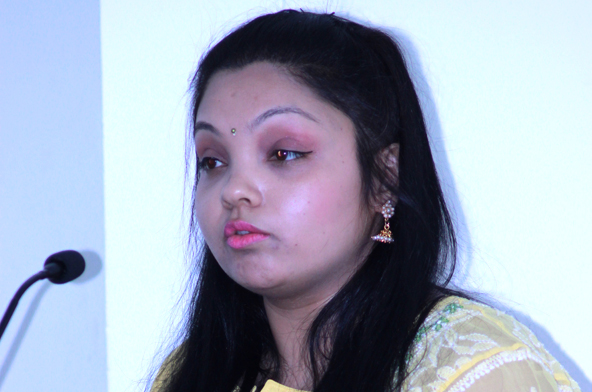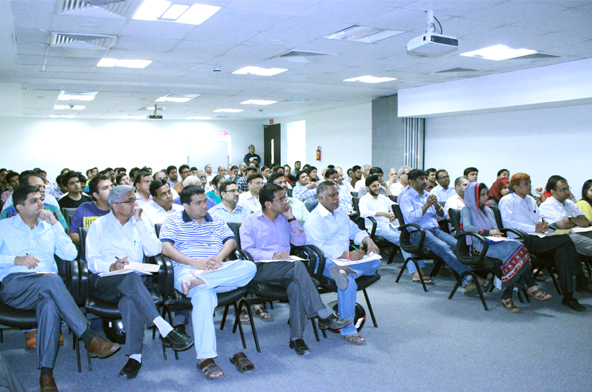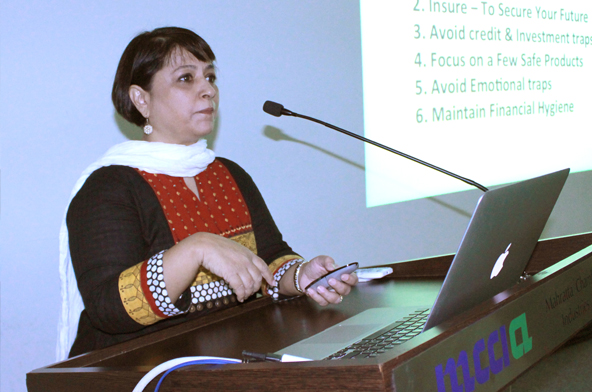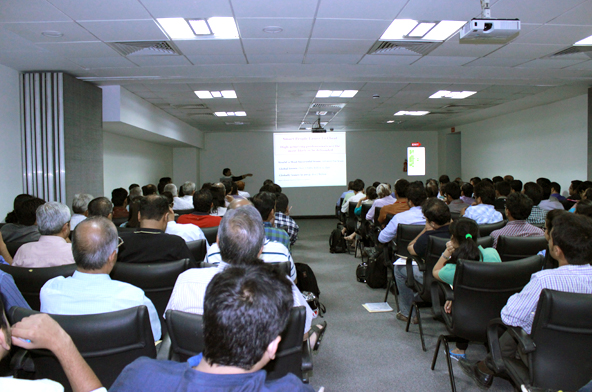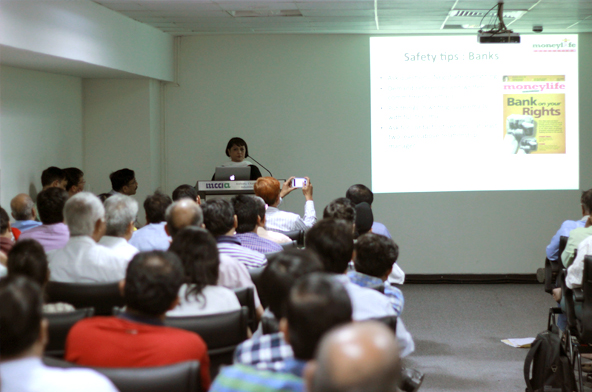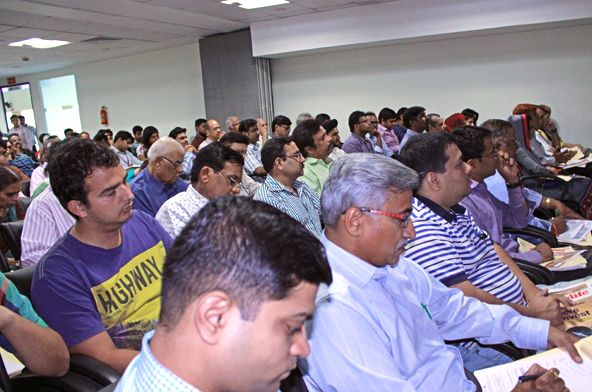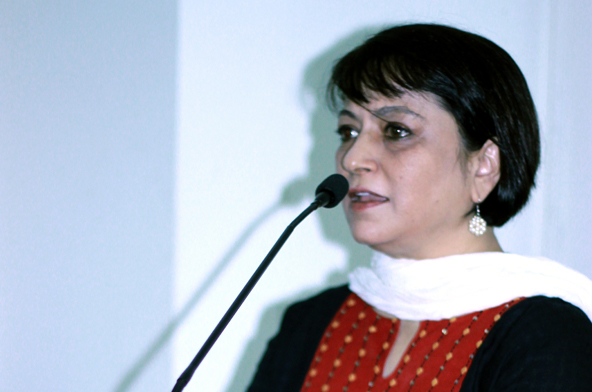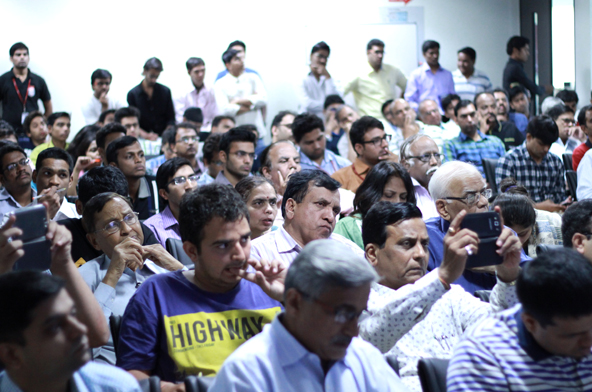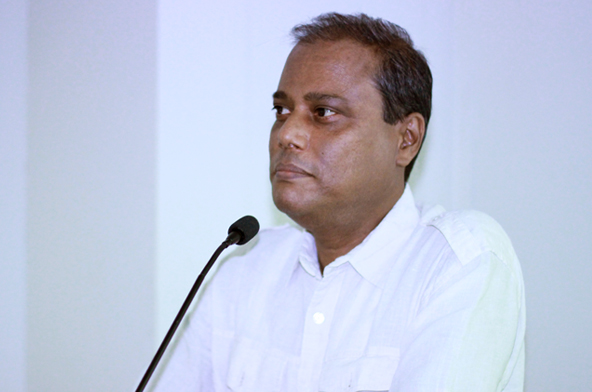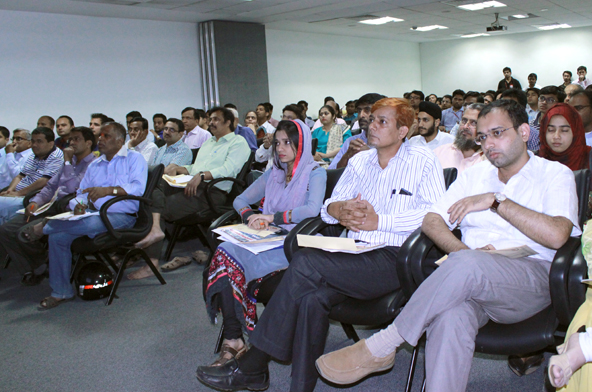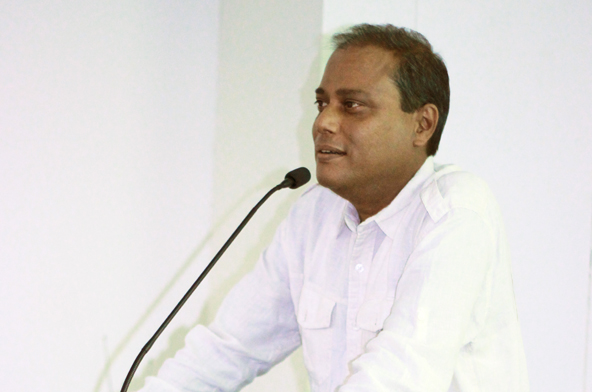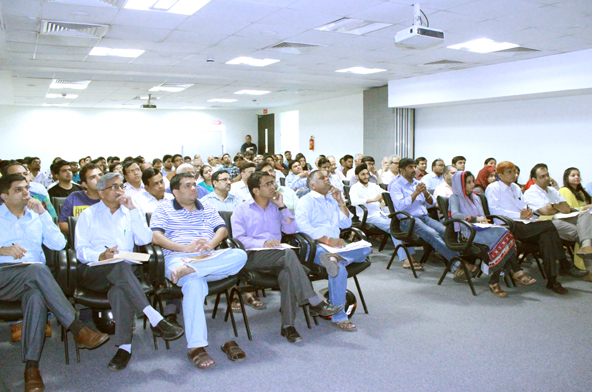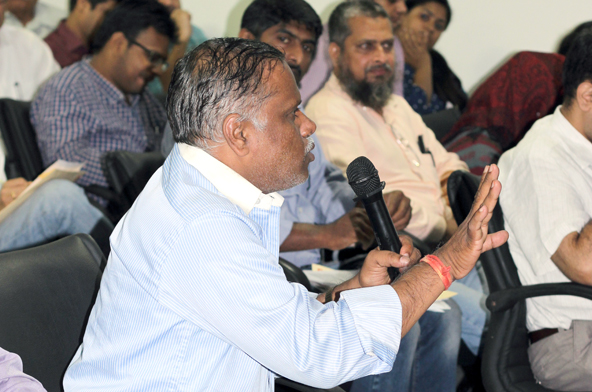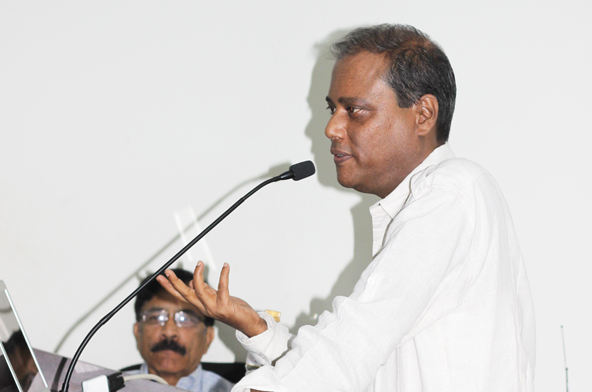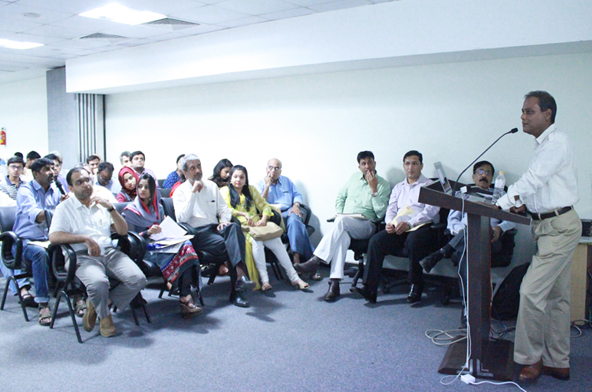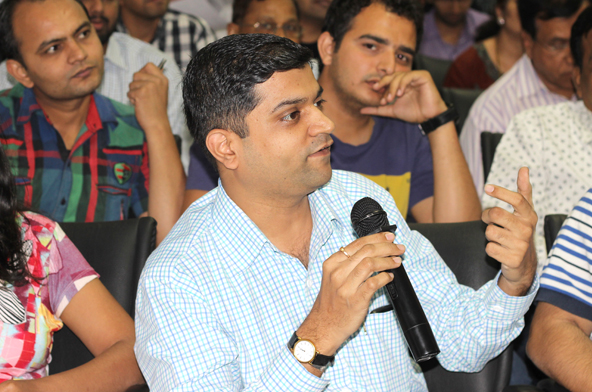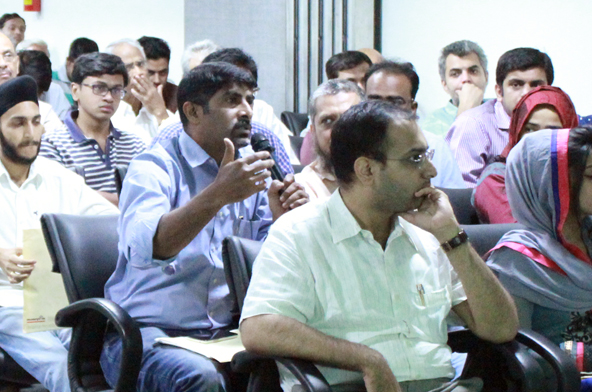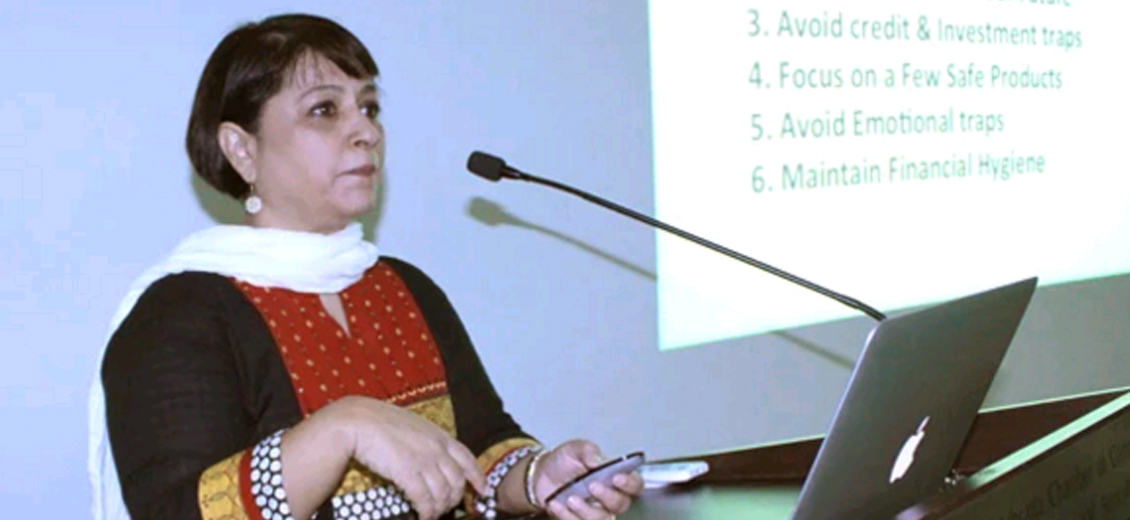
Moneylife Foundation conducted yet another successful, educative and highly interactive seminar – ”Be Safe and Smart with Your Money” in Pune, after a long gap of almost two years. This was the seventh Moneylife Foundation event conducted in Pune since 2010. The event, which witnessed a packed audience, was held at the Mahratta Chamber of Commerce Industries & Agriculture (MCCIA).
The flagship seminar has two distinct sessions separated by a tea break. The first is by Sucheta Dalal, managing editor of Moneylife and founder trustee of Moneylife Foundation. The next session is by Debashis Basu, editor and founder trustee of Moneylife Foundation.
How to Be Safe With Your Money
Ms Dalal’s session was titled ‘How to Be Safe with Your Money’. Ms Dalal started by pointing out that financial products are fundamentally different from consumer products. You can test-drive a car but you cannot test-drive a mutual fund; the fate of your investment becomes clear only after a year or more. Moreover, in the real world brand names mean something. Not so in financial world. However, people translate their experience of buying consumer products into financial world and later repent their decision.
Advising investors to see through the sales pitch, Ms Dalal said. Companies need to sell products and services to earn money, the media focusses on advertising revenues and may not hesitate selling news, while the intermediaries are concerned about their commission and sales target. Therefore, the buyer needs to see through this sales pitch and chose the financial product based on six mantras.
The six mantras, articulated by Ms Dalal, include – not to lose money, insure for securing future, avoid credit and investment traps, focus on few safe products, avoid emotional traps and maintain financial hygiene.
A large section of her presentation was focused on how not to lose money. Many people unfortunately fall for pyramid schemes that promise extraordinary returns. Unfortunately, “Smart people are easier to cheat,” she noted, adding, “high-achieving professionals are often defrauded.”
Many have lost huge amounts of money in pyramid, MLM, chain marketing and chit funds such as Herbalife, Amway, Saradha, Rose Valley, SpeakAsia, Gold Quest or Qnet. There are various chain marketing schemes which operate at every level in the country and cheat even the poorest of people. Moneylife has consistently written about these schemes. “The main danger of all such schemes is, those early entrants, who earned high returns initially, usually re-invest all money in the scheme and eventually lose everything when the scheme collapses,” she said.
Ms Dalal then cautioned the audience about internet scams – mainly email traps, like the lottery scam, being sent out in the name of Reserve Bank of India, its governors, wife of Raj Rajrathnam and so on. Then there are job scams, where people are offered the ‘so-called jobs’ in top companies. However, any respondents to such emails end up losing their money.
She also advised the audience against falling prey to phishing and vishing scams. While phishing relates to an email that appears to be sent from banks, seeking verification PIN, password, date of birth and account details, in vishing, the scamsters call on the mobile number of the account holder and ask for such details.
Several times, people, who have no knowledge about stock markets, are lured with promises of huge returns in shortest possible time. Trading schemes, like Nifty trades, Forex derivatives and oil futures, all have brought grief to investors, and investors should stay away from such offers, she said.
Ms Dalal advised participants to stay away from plantation schemes, art funds and realty companies offering high returns on deposits. Any scheme offering 3% more than deposit rate should be a red flag. She also spoke about the various internet scams that are usually after your money or your identity. Ms Dalal also touched upon some factors to keep in mind while dealing with credit cards, insurance and credit scores.
How to bank safely? When it comes to choosing a bank, she cautioned the audience against falling for small cooperative banks. As for private banks, Ms Dalal pointed out said that relationship managers usually work only to earn themselves fat commissions from your investments. Thus many “relationship managers” resort to mis-selling or hard selling a product. If you do buy anything from them, have all your communication documented.
She cited the example of Mangelal Sharma, who was persuaded to withdraw Rs7 lakh from his fixed deposit and invest in DWS’s mutual fund scheme with a 5-year lock in period. (Read Mangelal Sharma gets his Rs7 lakh back—another Moneylife victory)
In another example, well-known singer-actress Suchitra Krishnamoorthy was looted by HSBC bank for five years by promising an extravagant assured return of 24% from mutual funds as well as insurance. Moneylife Foundation relentlessly pursued the case for over two years and finally, HSBC Bank agreed to settle the issue and repaid her Rs1.37 crore.
One should be careful while investing one’s money in fixed deposits, she said. Bank deposits are usually safe but corporate deposits should be inspected carefully before investing. “Do not go for any deposit which does not have a legitimate credit rating,” said Ms Dalal. And most importantly, if the interest offered is 3% higher than bank fixed deposits, one should stay away.
Talking about insurance, Ms Dalal, said, we Indians do not like to insure thinking that it is waste of money in case there is no claim. “Insurance is not an investment. It should be treated as money that is kept for unforeseen contingencies,” she said.
Ms Dalal then gave some tips on keeping one’s money safe. It includes, registering mobile number with service providers to get transaction and payment alerts and looking out for small charges on unnecessary services.
Several people want to have a credit card and do not even read the terms and conditions, especially the interest rates and charges that are usually in the range of 40% to 65%. Another point to keep in mind is that one should not use credit card to withdraw cash, as this is termed as instant loan and needs to be paid separately. Even in the part repayment, the cash (withdrawn) is adjusted last, she added.
Ms Dalal, explained credit history, credit score and reports which are becoming increasingly important. She said, all your borrowings and repayments for credit card, student or education loan and other loans, are tracked by credit information companies, like CIBIL, Experian, CRIF Highmark and Equifax.
Payment history, amounts owned, length of credit history, new credit and types of credit used, are some of the factors that affects ones credit score. The credit history remains with the credit bureaus for seven years and any default can affect one’s future borrowings, Ms Dalal added.
How to be Smart with Your Money
In the second session, ‘Be Smart with Your Money’, Debashis Basu, editor & publisher of Moneylife and founder trustee of Moneylife Foundation, took the audience through simple steps for investing smartly. To start with, he suggested saving at least 25% of your income. While Indians save a lot, they keep their money safe in bank deposits. Unfortunately, this is just the wrong thing to do especially for those who are in the highest tax bracket.
Usually we have different financial goals, such as saving on taxes, buying a house, child’s education etc. Mr Basu explained the different financial products available which can help meet these goals. Further, he explained the risk and returns associated with each financial investment. Most people don’t see the huge risk of inflation eating away their wealth. Mr Basu asked the audience to calculate everything in post-tax and post-inflation basis. He also took the audience through the pluses and minuses of different asset classes such as fixed income, gold, real estate, stocks/equity mutual funds and insurance. Most Indians prefer to invest in gold and real estate. Mr Basu pointed out that most investors don’t know what influences gold prices and this makes gold investing more of a speculation. He explained that the price of gold is driven by the six factors (mainly the movement of the dollar and rupee). The investors are unaware of any of them. On real estate, Mr Basu pointed out that we really don’t know the returns we would get from our real estate investments because not enough data is available.
Stocks and equity mutual fund schemes are the best route for long term wealth creation, based on past data. This is because well-managed businesses create profits which get reflected in the stock prices. But by nature, stock investments are volatile. They may decline sharply if they are overvalued. If you really want to gain from the enormous wealth that stocks and funds can create, you have to understand this and stay patiently invested in good funds or a bunch of good stocks, advised Mr Basu. Apart from the returns, Mr Basu explained the risks involved in various asset classes.
The three and a half hour session concluded with a lively question and answer session. To know about future sessions, please register as a Moneylife Foundation member here


